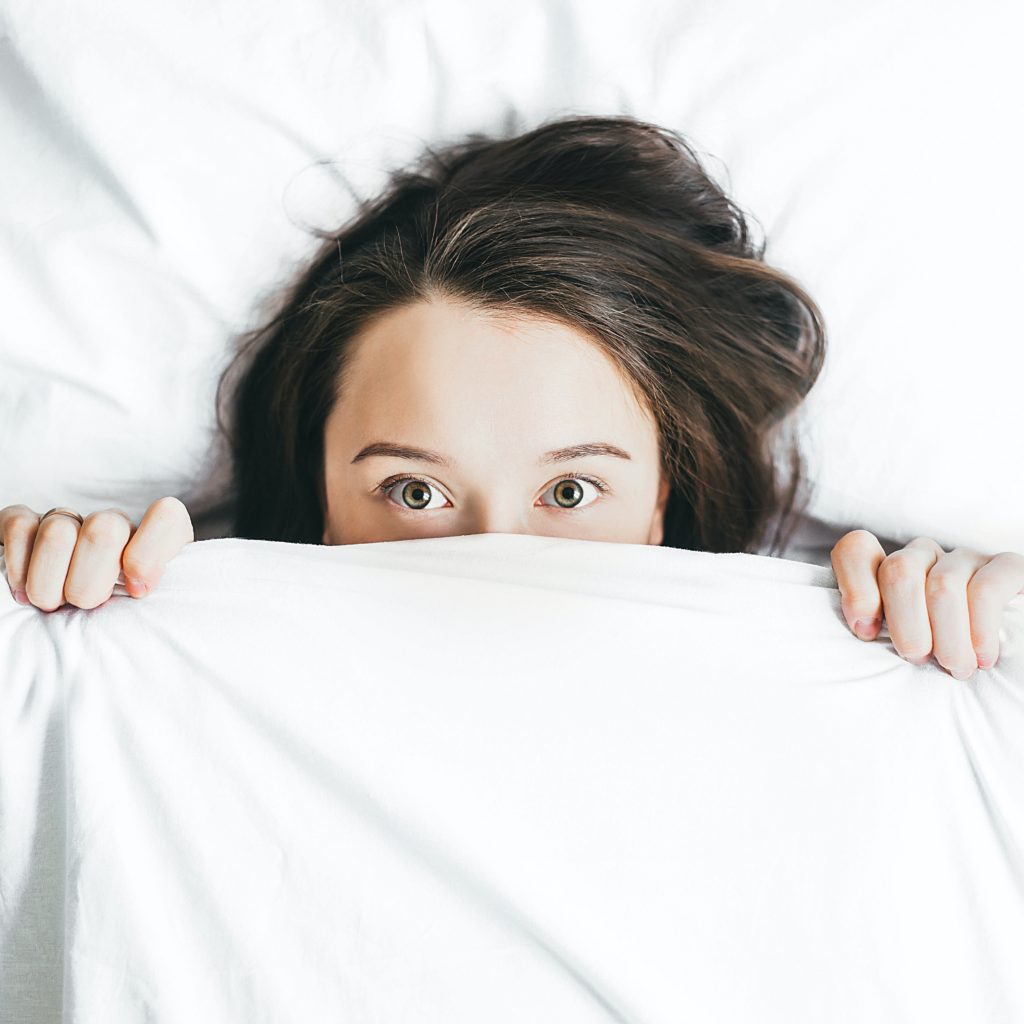It might be obvious that sleep is an important part of physical and mental health. After all, humans typically spend one third of our day just sleeping. We sleep to recharge our bodies, reset our minds, and refresh our souls in preparation for the new day. But what exactly does sleep do for us, and how can we optimize our sleep habits for better overall health? Research shows that a lack of sleep and sleep debt (the cumulative effects of sleep deprivation) are detrimental to our wellbeing.

Contents
Lack of Sleep and Daily Functioning
The quality and quantity of sleep are heavily related to human health, both physically and mentally. This means that a lack of sleep will significantly impact human functioning. Multiple studies on the effects of sleep find individuals with sleep deprivation are most impacted in their mood (and emotion). Following this is cognitive performance, then motor performance. While motor performance was the least affected of the three indicators above, it was still significantly worse than those who had gotten ample sleep. In other words, if you lack sufficient hours of sleep, you will not only feel bad, but your decision-making skills will be impaired, as will your performance in physical day-to-day tasks.
Furthermore, while any lack of sleep may impact human functioning, individuals with partial sleep deprivation (getting less than 6 hours of sleep for at least 5 consecutive days) are typically more severely impacted in physical performance than those with long-term or total sleep deprivation. Individual with long-term sleep deprivation, however, are typically more heavily impacted in terms of decreased interest and attention. There are absolutely no positive effects to sleep debt, even if it’s just a few hours less sleep per night!

The Vicious Cycle of Stress and Sleep Debt
It was mentioned above that a lack of proper sleep most impacts mood and emotion. Subjects of sleep studies have reported experiencing heightened stress, anxiety and anger when deprived of sleep. Sleep-deprived individuals have a lower threshold for stress tolerance, with an amplified perception of subjective psychological stressors.
The troubling thing about this, is that high levels of stress can impact sleep quality in itself. If you lack sufficient hours of sleep, you become more easily stressed. Moreover, the more stressed you are, the more you struggle to get a good night’s sleep. This is a vicious cycle you do not want to fall into. Furthermore, if this continues long-term, you risk developing chronic sleep disturbances.
The Horror of Sleep Disorders
Even if you are not consciously depriving yourself of sleep, sleep disturbances can still impact the quality of your sleep. Consequently, the quality of your cognitive and motor performance levels are also affected. For example, sleep fragmentation is when an individual wakes up many times throughout the night, interrupting a natural sleep schedule. Fragmented sleep leads to extreme daytime fatigue, as well as potential mood disorders and unintended weight gain.
Sleep fragmentation can occur in severely stressed individuals, but can also manifest as a subproduct of an underlying sleep disorder. For example, sleep apnea (breathing problems during sleep) or narcolepsy (disorder of excessive sleepiness), in which case professional medical help should be sought out. Severe levels of disordered sleep can significantly impact your daily functioning, in more areas than one. It’s important to look out for any signs of disordered sleep, and seek professional help to sort out potential issues before they get serious.

How Can We Get the Best Sleep Possible?
It’s easy enough to say “make sure you get enough sleep”. But what exactly is the perfect amount of sleep? And how can we avoid unintentional sleep disturbances or sleep debt?
Typically, the average adult should get at least 7 hours of consecutive sleep per night for optimal health. Young adults or individuals recovering from illness may benefit from 9 hours of consecutive sleep each night. Any lack of sleep may lead to physical and psychological impairments.
In order to get the best quality of sleep you can, first and foremost, it is important to keep a regular sleep schedule. In other words, avoid the possibility of sleep debt. Firtly, be sure to go to bed and wake up around the same time every day. Even if you can’t help staying up late on some nights, the important thing is to wake up at the same time again the next morning. If you are finding it difficult to sleep, you may be stressed, or perhaps filled with excess energy. It may be beneficial to try some light exercise, such as dancing, for the double effect of stress-relief and expending energy before bed time.
Healthy Sleep for a Happy Life
Whatever your situation may be, it’s absolutely essential to maintain a healthy sleep habit in order to be your best self. Sleep is an easy thing to master once you get the hang of it – take control, and get a good night’s sleep!
If you’re looking for more tips on how to care for your mental health, check out some of our past blog posts!
→ Looking to improve your mental health? Try the SELFMIND app FREE for a week!
Image: Unsplash
Resources:
Bertha, E. (2018, August 15). Everything You Need to Know About Sleep Fragmentation. Retrieved July 02, 2020, from https://blog.eightsleep.com/everything-you-need-to-know-about-sleep-fragmentation/
Khazaie, H. (2010). The Effects of Chronic Partial Sleep Deprivation on Cognitive Functions of Medical Residents. Iran Journal of Psychiatry, 5(2): 74–77.
Minkel, J. D., et al. (2012). Sleep deprivation and stressors: Evidence for elevated negative affect in response to mild stressors when sleep deprived. Emotion, 12(5), 1015-1020. doi:10.1037/a0026871
Pilcher, J. J., & Huffcutt, A. I. (1996). Effects of Sleep Deprivation on Performance: A Meta-Analysis. Sleep, 19(4), 318-326. doi:10.1093/sleep/19.4.318
Watson, N. F., et al. (2015). Recommended Amount of Sleep for a Healthy Adult: A Joint Consensus Statement of the American Academy of Sleep Medicine and Sleep Research Society. Journal of Clinical Sleep Medicine, 11(06), 591-592. doi:10.5664/jcsm.4758



